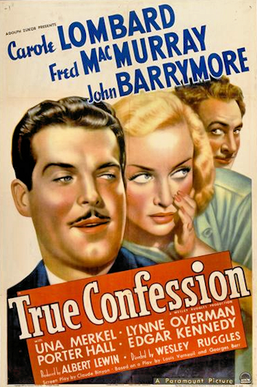A blog formerly known as Bookishness / By Charles Matthews
"Dazzled by so many and such marvelous inventions, the people of Macondo ... became indignant over the living images that the prosperous merchant Bruno Crespi projected in the theater with the lion-head ticket windows, for a character who had died and was buried in one film and for whose misfortune tears had been shed would reappear alive and transformed into an Arab in the next one. The audience, who had paid two cents apiece to share the difficulties of the actors, would not tolerate that outlandish fraud and they broke up the seats. The mayor, at the urging of Bruno Crespi, explained in a proclamation that the cinema was a machine of illusions that did not merit the emotional outbursts of the audience. With that discouraging explanation many ... decided not to return to the movies, considering that they already had too many troubles of their own to weep over the acted-out misfortunes of imaginary beings."--Gabriel García Márquez, One Hundred Years of Solitude
Sunday, January 17, 2016
True Confession (Wesley Ruggles, 1937)
A somewhat too frantic screwball comedy, True Confession plays fast and loose not only with the legal profession but also to an extent with the careers of its stars. Fred MacMurray plays Kenneth Bartlett, a lawyer who insists on defending only those he thinks are really innocent, which gives him some trouble when his wife, Helen (Carole Lombard), goes on trial for murder. She's a would-be writer who can't always be trusted to tell the truth, so even though she didn't commit the crime, she winds up saying she did and pleading self-defense. Meanwhile, the trial is being watched by Charley Jasper (John Barrymore), an alcoholic loon who knows who really did the deed. None of these people make much sense, especially Barrymore, who seems at times to be reprising his earlier, far more successful performance as Oscar Jaffe opposite Lombard's Lily Garland (aka Mildred Plotka) in Twentieth Century (Howard Hawks, 1934). Alcohol had taken a serious toll on Barrymore, who was 55 when he made this film; he looks 70. Lombard was better, more controlled in her comic flights in Twentieth Century, too. Here she verges on grating at times. Comparisons are seldom fair, but it has to be said that the difference between the two films has to be that the earlier and better one was directed by Hawks from a screenplay by Ben Hecht and Charles MacArthur, and True Confession was directed by Wesley Ruggles from a screenplay by Claude Binyon based on a French farce. Still, there's some fun to be had here, and the cast includes such stars from the golden age of character actors as Una Merkel being giddy, Porter Hall being irascible, Edgar Kennedy doing multiple face-palms, and Hattie McDaniel playing one of her always watchable (if regrettable) roles as the maid.
Links:
Carole Lombard,
Claude Binyon,
Edgar Kennedy,
Fred MacMurray,
Hattie McDaniel,
John Barrymore,
Porter Hall,
True Confession,
Una Merkel,
Wesley Ruggles
The River (Jean Renoir, 1951)
The near-hallucinatory vividness of Technicolor was seemingly made for Jean Renoir, the son of the Impressionist painter Pierre-Auguste Renoir, but this film was his first use of the process. It's the more remarkable because he was working with his nephew (and Pierre-Auguste's grandson), Claude Renoir, the cinematographer, and neither director nor photographer was particularly experienced in shooting landscape, especially in the country of India, which is the real star of the film. The River has a distinctly Western attitude toward the country, viewing it through the eyes of its British residents. It's based on the experiences of Rumer Godden, the English writer who spent her childhood in India. Her screenplay, co-written with Jean Renoir, is about the tensions between cultures, using the Ganges, the titular river, as a symbol of both the eternal and the mutable. Ravishingly beautiful as the film is, it suffers from some major weaknesses in casting. Its central character, the teenager Harriet, is played by Patricia Walters, a nonprofessional who made no subsequent films and never quite seems at ease before the camera. As Capt. John, the American recovering from the loss of a leg during the war, Thomas E. Breen doesn't have the kind of charisma that would seem to have Harriet, her older friend Valerie (Adrienne Corri), and her Eurasian neighbor (Radha Burnier) falling over themselves to attract his attention. (Breen, incidentally, was both a real amputee from a war wound and the son of the enforcer of the Production Code, Joseph I. Breen.) But for those willing to overlook its flaws, which also include a lack of narrative urgency, The River rewards sympathetic attention and, as a film by a Frenchman about the English in India, stands as a landmark in postwar international filmmaking.
Links:
Adrienne Corri,
Claude Renoir,
Jean Renoir,
Patricia Walters,
Radha Burnier,
The River,
Thomas E. Breen
Subscribe to:
Posts (Atom)

